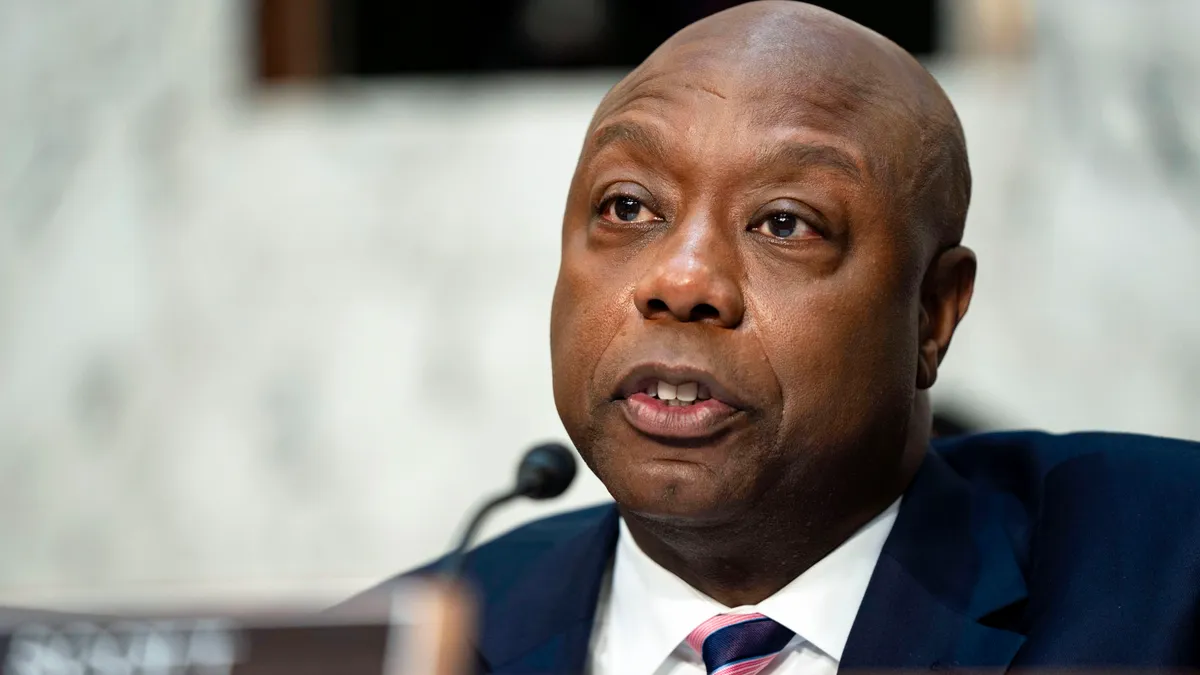Lawmakers are two steps away from repealing the Consumer Financial Protection Bureau’s final rule to cap overdraft fees at $5.
The Senate voted 52-48 on Thursday in favor of a resolution to overturn the overdraft rule through the Congressional Review Act. One Republican, Sen. Josh Hawley of Missouri, voted against the measure.
The House Financial Services Committee approved a companion measure March 5, by a 30-19 vote.
The overdraft rule would be repealed if a simple majority of the full House votes so – Republicans alone can push that through – and if President Donald Trump signs off.
The Congressional Review Act allows lawmakers 60 days to overturn federal regulations. But for rules issued less than 60 days before the end of a congressional session, that window resets when a new session starts. The CFPB issued its final rule on overdraft in December.
Under the rule, banks and credit unions with more than $10 billion in assets would be given a choice regarding their overdraft fee policies. They can choose a blanket $5 charge per overdraft; set a fee that’s equal to their costs and losses from offering overdraft protection; or continue charging overdraft fees at current rates – generally around $35 – as long as those lenders give customers notifications similar to those associated with credit cards, the bureau said.
The Biden-era rule faced swift pushback. Within a day, four trade groups and three banks sued the CFPB – and less than a week later, sought a court injunction to halt the rule’s implementation.
Overdraft fees had largely fallen out of favor over the past several years as the Biden administration targeted them as “junk fees” and Democratic lawmakers publicly took bank CEOs to task over what they argued was an outsized penalty to consumers – and profit margin for banks – in charging the fee. Banks such as Capital One and Citi eliminated the fees altogether, while many others – notably, Bank of America and Wells Fargo – greatly reduced them.
Some Republicans, however, argued that eliminating the fee also eliminates overdraft protection, giving lower-income consumers fewer options when money is tight.
Sen. Tim Scott, R-SC, who introduced Thursday’s measure to overturn the CFPB rule, said the overdraft protection is essential for some.
“Your bank account goes beyond zero, you have to pay a fee, [but] your bills are paid,” said Scott, who chairs the Senate Banking Committee. “When you start capping this fee structure … you start eliminating the possibility of people working paycheck to paycheck to make the decision to continue to use their resources in the most effective way.
“To do the right thing for the working class is to give them all the options and let them decide,” he added. “Trust them with their own resources.”
But the committee’s ranking member has long spoken out against the fees.
“Republicans claim they care about lowering costs," said Sen. Elizabeth Warren, D-MA. "But overturning this rule will make big banks richer and hard-working families poorer."
The American Bankers Association – one of the trade groups suing the CFPB over the rule – asserted Thursday that if banks don’t offer overdraft protection, consumers would turn to “less regulated and higher risk non-bank lenders” to cover emergency expenses.
“If implemented, the CFPB’s eleventh-hour rule imposing government price controls would force many banks to limit or eliminate overdraft protection as we know it,” ABA CEO Rob Nichols said in a statement. “In adopting the rule, the Bureau ignored the majority of Americans who have consistently said they value the service and think it’s reasonable for banks to charge a fee for overdrafts.”
Some advocates, however, argued otherwise.
“The CFPB’s rule imposes reasonable limits that protect consumers from unfair fees while enabling banks to cover their costs,” Chuck Bell, advocacy program director at Consumer Reports, said in a statement. “Repealing the CFPB’s overdraft fee limits will hurt working families who are already struggling with high prices and inflation.”
Beyond its overdraft rule, the CFPB has been a touchstone for the Trump administration’s effort to reduce the size of government. The administration’s appointees to lead the bureau are facing several court cases against actions some have asserted would eliminate the bureau altogether.















